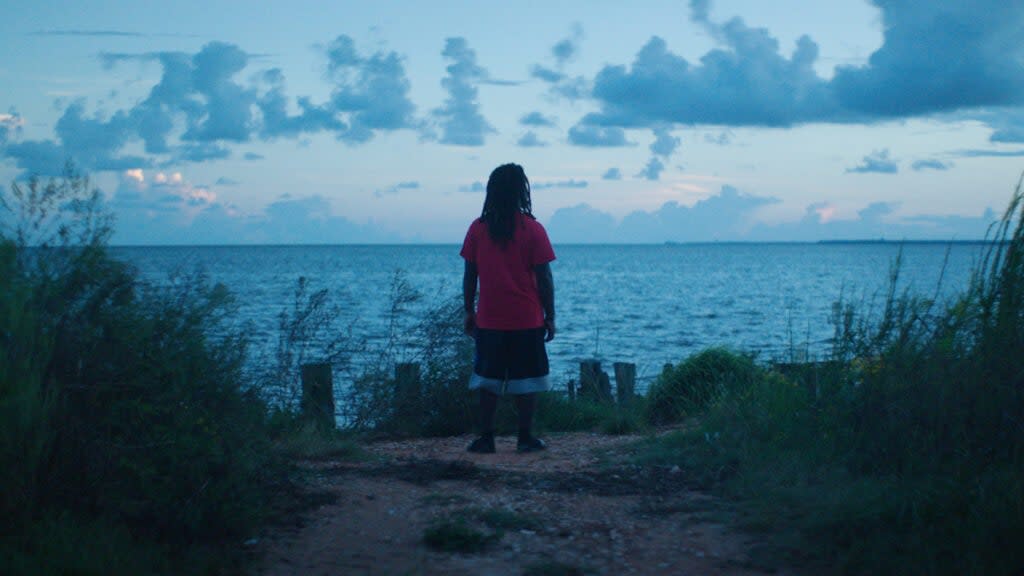‘Descendant’ Review: Powerful Doc Examines Generations of Oppression and Survival

Margaret Brown’s dense and moving documentary “Descendant” is a feat of cinematic nonfiction storytelling, about the importance of storytelling itself. Training her cameras on Mobile, Alabama, specifically the community of Africatown, Brown draws out a tale of America itself, and all of the complicated, violent histories that continue to inform America’s present.
“Descendant,” which earned a Special Jury Prize for Creative Vision at the 2022 Sundance Film Festival, is a fascinatingly multilayered film: it is an elegy wrapped around a true-crime story; an observational social-justice movie intertwined with an historical retelling that finds the universal in the specific. In braiding these strands together, Brown crafts a film that isn’t one thing or the other but instead dares to contain multitudes.
What is a descendant if not living history, their existence in the world a gift of their ancestors? Brown explores this connection as something spiritual, tangible and empowering. There is also a responsibility that that connection affords, to keep the stories alive through generations, a particularly extraordinary task for the residents of Africatown, who are descended from the survivors of the Clotilda, the last slave vessel to arrive in the United States, and illegally at that.
Also Read:
‘Fire of Love,’ ‘Good Night Oppy’ Lead Critics Choice Documentary Awards Nominations
The Clotilda landed in Mobile in 1860, bearing 110 captured Africans from Dahomey (now Benin). It was a crime, perpetrated by Timothy Meaher, and it started with a bet that he could pull off the kidnapping, smuggling and selling of Africans after the international slave trade to America had been abolished in 1808 (though slavery was still legal). After Captain William Foster brought the ship back to Mobile, Meaher stranded, then sold, the captives and set fire to the vessel. These people spent about five years enslaved in America, and after emancipation, they settled in Africatown, where they kept their stories, their history and their grief alive through the generations.
One of the last survivors of the Clotilda, Cudjo Lewis, was interviewed by folklorist and author Zora Neale Hurston, who transcribed his stories and experiences in the book “Barracoon,” originally intended to be published in 1931, but it sat in a vault for more than 80 years before it was finally published in 2018. Cudjo, who passed in 1935, was a living connection not just to the incredibly traumatic experience of slavery but to lived experience in Africa itself. Through him, his descendants can trace their history to their country, their tribe, a family history that is often denied to the African American descendants of enslaved people.
Also Read:
Here’s Why Some of the Black Community Is Driving #BoycottWomanKing on Social Media
One of the main storylines in “Descendant” follows the marine archaeological search for the Clotilda, which served not only as a connection to the ancestors but also as a crucial piece of evidence of the crime that was committed by Meaher. The film flirts with a bit of true crime as investigative reporters work to uncover historical deeds and documents that might indicate a cover-up, and a specialized team is brought in to search.
But then Brown pulls out (literally, with one of a couple of expertly deployed drone shots) to show us how Africatown is an egregious example of environmental racism, surrounded by smoke stacks and chemical plants. The land is zoned for industry, and that land — ironically or obviously enough — has been owned by the Meaher family and leased to factories spewing pollution and encroaching on Africatown land. The American problem has never been more starkly illustrated than in this example of one family oppressing another through generations. The means may have evolved, but they remain lethal, and even more insidious hidden in plain sight.
Also Read:
MSNBC’s ‘Model America’ Examines Myth of ‘Racial Utopia’ Through the 1990 Phillip Pannel Shooting
The descendants have an enormous responsibility to keep their stories alive and to keep themselves front and center in the journey of the Clotilda and the preservation of the town. Keeping Africatown thriving isn’t just for the historical record, and it isn’t just a fulfillment of the dreams of their ancestors, who purchased plots of land and passed it down through families. It’s a matter of survival, fighting for environmental justice, as so many residents have survived or died from cancer.
In “Descendant,” Brown keeps the focus on the descendants but shows us the bigger picture, again and again. It’s about the ship, but it’s about so much more than the ship. The importance of evidence, the environmental injustice, the oral histories and storytelling all might seem like discrete parts, but they are inextricably intertwined and relational. These reminders of the bigger picture serve as touchstones as she weaves a wider and wider web of impact.
Brown tracks in on the historic Oakleigh house in Mobile, a stately Southern mansion where slaveowners resided, with a woozy drone shot, bringing us in with an almost spectral, ghostly quality, the score eerie and suspenseful. We watch as one of Lewis’ descendants, Emmett, with long dreadlocks and a resonant Alabama drawl, enters and reads from “Barracoon.” It’s a powerful image, and he knows the significance of sitting on those chairs in that parlor, reading his ancestor’s words in his own voice. But the moment is overwhelming for him.
His connection to Cudjo is intense, stoked every time he tells their story, telling it again and again for fear that someone else might. If you take anything from “Descendant” — and there is much to ponder and process — it’s that ancestral histories are a potent part of human existence, and that storytelling can be a powerful tool for connection, for healing, for advocacy, and as a weapon against oppression.
“Descendant” opens in U.S. theaters and on Netflix Oct. 21.

